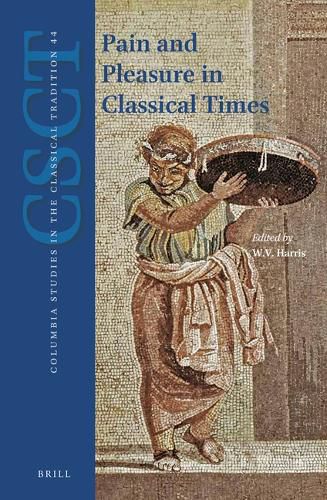Readings Newsletter
Become a Readings Member to make your shopping experience even easier.
Sign in or sign up for free!
You’re not far away from qualifying for FREE standard shipping within Australia
You’ve qualified for FREE standard shipping within Australia
The cart is loading…






Pain and Pleasure in Classical Times attempts to blaze a trail for the cross-disciplinary humanistic study of pain and pleasure, with literature scholars, historians and philosophers all setting out to understand how the Greeks and Romans experienced, managed and reasoned about the sensations and experiences they felt as painful or pleasurable. The book is intended to provoke discussion of a wide range of problems in the cultural history of antiquity. It addresses both the physicality of eros and illness, and physiological and philosophical doctrines, especially hedonism and anti-hedonism in their various forms. Fine points of terminology (Greek is predictably rich in this area) receive careful attention. Authors in question run from Homer to (among others) the Hippocratics, Plato, Aristotle, Lucretius, Seneca, Plutarch, Galen and the Aristotle-commentator Alexander of Aphrodisias.
$9.00 standard shipping within Australia
FREE standard shipping within Australia for orders over $100.00
Express & International shipping calculated at checkout
Pain and Pleasure in Classical Times attempts to blaze a trail for the cross-disciplinary humanistic study of pain and pleasure, with literature scholars, historians and philosophers all setting out to understand how the Greeks and Romans experienced, managed and reasoned about the sensations and experiences they felt as painful or pleasurable. The book is intended to provoke discussion of a wide range of problems in the cultural history of antiquity. It addresses both the physicality of eros and illness, and physiological and philosophical doctrines, especially hedonism and anti-hedonism in their various forms. Fine points of terminology (Greek is predictably rich in this area) receive careful attention. Authors in question run from Homer to (among others) the Hippocratics, Plato, Aristotle, Lucretius, Seneca, Plutarch, Galen and the Aristotle-commentator Alexander of Aphrodisias.